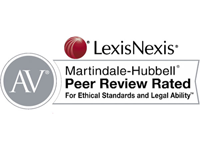Date: June 1, 2012
Yes, It Has Been a While…
It has now been approximately six months since our last newsletter. We knew that many people read and enjoyed our newsletters, but we did not realize the extent of the interest until we had a multi-month delay in sending one out. Thank you to all of our readers who have called, emailed, or otherwise contacted us to inquire.
We held off on sending our newsletter this spring due to a number of technology upgrades that are occurring here at our office, including the development of a new website. As part of the website upgrade, we will also be transitioning the delivery of our newsletter over to a new medium called “Constant Contact,” which makes it easier for us to send to multiple recipients (we have over 1,600 readers!) and to add or update recipient addresses. However, as it will still be another month or so before we launch, and given all of the inquiries from our readers, we thought sending one final newsletter in the “archaic” format of a PDF attachment was appropriate. Thank you again for your interest.
“Fair and Honest Is Not Enough”
At a recent conference for attorneys who practice in the special needs planning area, the conversation turned to our experiences with family member trustees who were less than diligent in carrying out their obligations. These trustees fail to keep all of their financial statements, they are unable to provide detailed explanations for various expenditures, and they otherwise treat trust funds as if they were nothing more than money in their own personal bank accounts (“We try to keep good records, but sometimes it’s just too much of a hassle….”).
As lawyers we regularly (some might say we incessantly) remind our clients that agreeing to serve as trustee brings with it some very important responsibilities, and the failure to carry out those responsibilities can have very unfortunate results. The law recognizes that a trustee is managing money for the benefit of someone else, and holds the trustee to a much higher standard of conduct than would be appropriate for one’s own assets. In other words, we can be sloppy about keeping records of how we spend our own money, but if we have agreed to manage someone else’s money, the rules are different. The term we use is “fiduciary duty” – every trustee has a fiduciary duty to the beneficiary (the person for whose benefit the trust was established), and this requires strict adherence to the rules of fiduciary conduct.
This fiduciary duty is magnified when the beneficiary is someone who – by reason of age or cognitive disability – does not have the capacity to oversee the trustee’s performance, and as such, the concept is especially important for trustees of special needs trusts. When someone agrees to serve as trustee of a special needs trust, not only does he agree to carry out the standard obligations of all trustees (the obligation to keep accurate and detailed records, the obligation to ensure that funds are invested in a responsible manner, the obligation to ensure that fiduciary income tax returns are filed on a timely basis), but he also agrees to administer the trust in a manner that is consistent with the rules of the Medicaid and/or Supplemental Security Income (SSI) programs.
The trustee’s failure to carry out these responsibilities could lead to a termination of income benefits and medical coverage for the individual with the disability. And if the trustee’s mistakes are egregious, the trustee may end up personally liable for the financial consequences of his or her mistakes (meaning that he would have to dig into his own pocket to compensate the beneficiary for his mistakes).
We often notice mistakes when we prepare accountings for our trustee clients. And while professional trustees (typically bank trust departments) can make mistakes, we see more problems when family members serve as trustees. But when we point out these mistakes to the trustee, we will often get these responses:
*“I don’t keep detailed records of how I spent the money. If necessary, I can tell you what you need to know just from memory.”
*“Of course I used trust funds for (the beneficiary’s) benefit, and I resent the implication that I might have misspent trust funds or used some of this money for my own expenses.”
*“Yes, I signed the trust agreement, but I never really read the document. I’ve been too busy caring for (the beneficiary). I’ve always been fair and honest in how I’ve used funds in the trust for (the beneficiary’s) benefit, and I don’t care what anyone thinks about the job I’ve done.”
Unfortunately, in the world of trusteeship fair and honest is not enough. You may have chosen Uncle Joe to serve as trustee, and Uncle Joe may be the most honest, well intentioned and dedicated advocate for your family member with the disability. He may spend hours as a friend and companion each week, he may talk to doctors, social workers and residential counselors, and he may have used trust funds to make your family member’s life as comfortable and enjoyable as money could buy. Nonetheless, if Uncle Joe cannot accurately account for every dollar he spent from the trust, he remains potentially and personally liable. And if he spent trust funds in a manner that violated an SSI or Medicaid program rule, then he put your family member’s government benefits at risk, regardless of how genuine his intentions might have been.
All in the Family
We know that choosing the trustee of a special needs trust can be one of the most difficult decisions our clients must make. Many are parents of children with disabilities, and they naturally gravitate towards other family members – siblings, cousins, aunts and uncles. In most instances, clients select family member trustees for both emotional and financial reasons.
Clients may believe that a family member will have an emotional attachment to the beneficiary of the trust – just like Uncle Joe – and as such the family member trustee will stick with the job, come what may. Clients also assume that a family member trustee – unlike a bank trustee – will not charge a fee, thereby saving the trust some money over the course of the beneficiary’s lifetime. Indeed, when we started practicing in this area of the law, we made these same assumptions.
Hindsight is Always 20/20…
After many years of practice, and after working with many, many trustees over the years, we have changed our way of thinking. While in some situations it is appropriate for a sibling or other family member to serve as trustee, in many (and perhaps most) cases, naming a family member is not the best decision.
First, clients fail to appreciate the amount of work involved in being a good trustee. Even in those instances where the family member retains outside assistance for such services as tax return preparation, annual accountings, and investment review, the family member trustee is still in the driver’s seat. She remains legally responsible to ensure that all of those steps are taken, and she remains potentially liable if they are not. Thus, a good trustee needs to actively supervise all trust activity, and it can be a time consuming job.
Second, clients often assume that a family member trustee will not charge for her services. In fact, every trustee – family member, bank or some other professional – is entitled to a fee as a matter of law. The fee is known as a trustee’s “commission,” and no trustee can be compelled to serve without the right to be paid for her time.
Experience has taught us that these two assumptions – that a family member can handle the job without a problem, and that they will do it for free – are simply inaccurate. In recent years we have seen more and more family member trustees resign from the job. The time and effort required to do the job right was simply more than they expected, and they wanted out. They may want to remain involved in the life of the family member with the disability in some capacity, but not as a “fiduciary” charged with managing money and property.
For those family members who continue on as trustee, most have begun taking compensation (i.e. they are taking their commissions). And so they should; these are time consuming and often complex management arrangements, and trustees who take the job without any compensation typically end up resentful and frustrated. But once the family member starts taking commissions, there is really no significant cost difference between naming a corporate trustee and naming a family member trustee, and so it turns out that the client – the one who selected the family member trustee – was operating under a false assumption.
Are we saying that a family member should have no role? Absolutely not. We are saying that there are often other and better roles for family members to play – guardians, agents under Power of Attorney or Health Care Proxy, or just a plain old advocate or companion. In those cases where a bank or other professional trustee is used, the family member can still be given certain rights to make sure things are going well: the family member can have the right to request copies of all trust financial statements, the family member can have the right to receive annual accountings of trust activity, and if the bank or professional trustee is not responsive or proactive, the family member can have the right to change trustees. For most family members – if they truly understood the alternative – they would choose this level of responsibility over outright trusteeship. Our job as special needs planning attorneys is to help our clients understand the alternatives.
This newsletter is not intended as a substitute for legal counsel. While every precaution has been taken to make this newsletter accurate, we assume no responsibility for errors or omissions, or for damages resulting from the use of the information in this newsletter. If you would like to be removed from our distribution list, please email us or call us at (518) 881-1621















